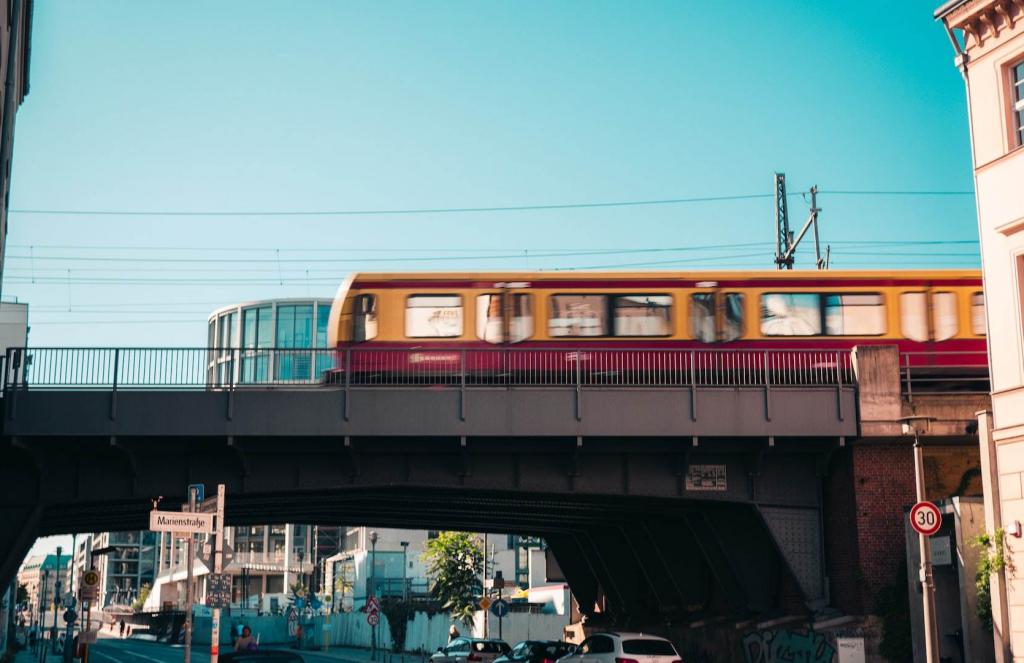Thessaloniki gets ready for its metro launch in November
The underground rapid transit lines have been under construction for almost two decades due to various project delays
 TheMayor.EU logo
TheMayor.EU logo 
Berlin has proposed a 29-euro monthly ticket to cover all public transport in the city, Source: Chris Kursikowski / Unsplash
Despite Germany not having a clear plan for a follow-up public transport policy, Berlin’s version sold 30,000 BVG subscriptions in a week
Berlin has now found a solution to the 9-euro ticket’s follow-up problem. Last Monday, local authorities launched the 29-euro ticket to the public and according to a recent statement by the BVG, Berlin’s public transport company, demand for the new pass is very high.
According to a press statement, the company has sold around 30,000 subscriptions in the last week, causing large queues at BVG’s brick-and-mortar hubs. This sudden influx caused the company to ask customers to use their online platform, to avoid the wait.
Importantly, Berlin’s 29-euro ticket will only be available through a one-year subscription contract and will be valid within the city limits. It will run from 1 October until 31 December and cover all public transport options in the city.
Also, the reduced fee will apply to everyone else who has already purchased a one-year subscription to Berlin’s public transport. At the same time, the city has made a special offer for people who have signed on specifically because of the reduced rate.
They will have the option to cancel their subscription on 1 January, switch to a different tariff plan or, according to a statement by the city, opt for a possibly new follow-up fare of the 9-euro ticket, expected at the start of 2023.
Last summer Germany launched the 9-euro ticket – a heavily subsidised monthly transport pass that cost just 9 euros. At the time, government officials explained that the measure was aimed at giving people more transit options amidst the fuel price hike while convincing more people to ditch their cars.
Moreover, the ticket was available from June to September and it allowed passengers to use all public transport, nationally. This meant that people could use trains for vacation getaways and use public transport at their final destination with one 9-euro ticket purchased anywhere in the country.
However, during the launch of the policy, many German state authorities had concerns over financing the tickets, which led to the policy expiring at the start of September. Furthermore, since then these concerns have made their way into the political debate in the Bundestag, leaving the policy without a viable successor for the time being.
One thing that the 9-euro ticket definitely highlighted was the strong rural and urban divide on the issue of mobility. This point has been echoed by regional politicians in Germany, explaining that many far-flung communities simply lack access to any public transport.
At the same time, many cities have reaped the benefits of high public transport usage and some have decided to fund a successor policy out of the municipal budget. One is definitely Berlin, however, another is Bonn, with an even more generous offer of a 19-euro ticket.
Despite the lack of a clear follow-up plan, the Association of German Transport Companies (VDV) has said that the ticket was considered a resounding success. This is because during the time it was active, public transport replaced 10% of trips, saving millions of tons of CO2.

The underground rapid transit lines have been under construction for almost two decades due to various project delays

Now you can get your wine in Talence by paying directly in Bitcoin

That’s because the state has to spend money on updating the railway infrastructure rather than subsidizing the cost of the popular pass

Rethinking renewable energy sources for the urban landscape

The examples, compiled by Beyond Fossil Fuels, can inform and inspire communities and entrepreneurs that still feel trepidation at the prospect of energy transition

Now you can get your wine in Talence by paying directly in Bitcoin

The 10th European Conference on Sustainable Cities and Towns (ESCT) sets the stage for stronger cooperation between the EU, national and local level to fast track Europe's transition to climate neutrality.

At least, that’s the promise made by the mayor of Paris, Anne Hidalgo

The underground rapid transit lines have been under construction for almost two decades due to various project delays

At least, that’s the promise made by the mayor of Paris, Anne Hidalgo

Hostal de Pinós is located in the geographical centre of the autonomous region

Despite its church-y name, the district has long been known as the hangout spot for the artsy crowds

Urban dwellers across the EU are having a say in making their surroundings friendlier to people and the environment.

Forests in the EU can help green the European construction industry and bolster a continent-wide push for architectural improvements.

Apply by 10 November and do your part for the transformation of European public spaces

An interview with the Mayor of a Polish city that seeks to reinvent itself

An interview with the newly elected ICLEI President and Mayor of Malmö

A conversation with the Mayor of Lisbon about the spirit and dimensions of innovation present in the Portuguese capital














